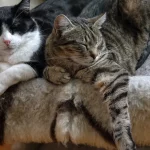Why are Bengal Cats Illegal in NYC? Exploring the Reasons Behind the Ban
In the concrete jungle of New York City, where dreams come to life, there exists an enigmatic restriction on an extraordinary feline breed – Bengal cats. These captivating creatures, with their wild leopard-like appearance and affectionate personalities, have charmed pet enthusiasts worldwide.
However, their presence within the city’s limits is prohibited, leaving many aspiring pet owners puzzled and curious as to Why are Bengal Cats Illegal in NYC. In this article, we embark on a journey to explore the reasons behind this intriguing ban, shedding light on the implications it holds for both the citizens and these alluring felines. So, let’s untangle the mystery and understand the factors that led to the prohibition of Bengal cats in the heart of the Big Apple.
Why are Bengal Cats Illegal in NYC? Unraveling the Enigma
Before delving into the reasons for the ban, it is essential to understand what Bengal cats are. Bengal cats are a hybrid breed created by crossing Asian Leopard cats with domestic cats. This hybridization results in their distinctive coat pattern, which resembles that of wild leopards. Due to their striking appearance and active personality, Bengal cats have gained popularity among cat enthusiasts worldwide.
Check also: Unveiling the Melodious Meow of Bengal Cats: A Fascinating Feline Communication
The Origins of the Ban
The ban on Bengal cats in NYC can be traced back to the 2003 Health Code Article 161.01, which restricts the ownership of certain exotic animals within the city. Bengal cats, along with several other wild and hybrid animals, fall under this category. The primary reason behind this legislation was concern for public safety and the well-being of both the animals and the residents.
Check also: Why Are Bengal Cats Illegal in USA? Understanding the Reasons Behind the Restrictions
1. Public Safety Concerns
Bengal cats, despite being domesticated, retain some of their wild instincts due to their hybrid lineage. They possess a higher energy level compared to most domestic cats and require ample physical and mental stimulation. If not properly cared for or given adequate space, these cats can exhibit behavioral issues, including aggression and destructiveness.

Furthermore, the resemblance of Bengal cats’ appearance to that of wild leopards can be problematic. It might create confusion among the general public and law enforcement, potentially leading to unnecessary panic or dangerous situations. The ban aims to prevent incidents involving these exotic cats and promote public safety.
2. Conservation and Animal Welfare
Another crucial aspect behind the ban is the conservation of wild animals and animal welfare concerns. Hybrid breeds like Bengal cats, which result from the breeding of wild and domestic species, can pose a threat to the natural biodiversity of the wild population. The ban helps in avoiding potential genetic pollution and preserves the integrity of the wild species.
Moreover, the ownership of Bengal cats requires a level of commitment and expertise beyond what most average pet owners possess. Ensuring the well-being of these cats can be challenging, especially given their specific dietary and environmental requirements. By enforcing the ban, NYC aims to discourage unprepared individuals from obtaining these exotic pets and potentially subjecting them to inadequate care.
3. Zoning and Space Limitations
The ban on Bengal cats in NYC might also be linked to zoning regulations and space limitations. New York City, known for its dense population and limited living spaces, might not be the most suitable environment for accommodating these active and energetic cats. Lack of adequate space and environmental enrichment can lead to stress and behavioral issues in Bengal cats, adversely affecting their health and overall well-being.
4. Legal and Ethical Concerns
From a legal standpoint, regulating the ownership of Bengal cats aligns with the broader initiative to prevent animal cruelty and unethical breeding practices. In the past, some unscrupulous breeders exploited the demand for Bengal cats, leading to unethical breeding conditions and compromised animal welfare. Banning the breed helps curb such practices and encourages responsible pet ownership.
5. Impact on Pet Owners
The ban on Bengal cats undoubtedly affects prospective pet owners who genuinely appreciate the breed’s beauty and temperament. Many responsible individuals who are willing to provide a loving and suitable home for these cats are disappointed by the prohibition.
For those passionate about Bengal cats, residing outside of NYC might be the only option to legally own one. However, potential owners must remember that acquiring a Bengal cat requires significant commitment, as they demand a substantial investment of time, effort, and resources.
Alternatives for Cat Lovers
If you are a cat lover in NYC and disappointed by the ban on Bengal cats, don’t fret! There are numerous other cat breeds with equally charming personalities and unique appearances that are legal to own within the city. Breeds like Maine Coon, Ragdoll, and Siamese cats make excellent companions and can thrive in urban environments.
Conclusion
While Bengal cats are undeniably captivating and endearing, the ban on their ownership in NYC is driven by concerns for public safety, conservation, and animal welfare. It aims to prevent potential risks associated with owning exotic pets and promotes responsible pet ownership. Instead of feeling disheartened by the ban, prospective pet owners in NYC can explore other fantastic cat breeds that are well-suited to city living. Remember, the key to successful pet ownership lies in understanding the needs of the specific breed and providing them with a loving and suitable environment to thrive.
Frequently Asked Questions
Are there any exceptions to the ban on Bengal cats in NYC?
As of now, there are no specific exceptions to the ban on Bengal cats in NYC. The restriction applies to all residents within the city limits, regardless of their circumstances or qualifications. The ban was put in place to encompass all situations and prevent potential issues related to owning these exotic felines. Therefore, regardless of how responsible or experienced a potential owner might be, the law prohibits the ownership of Bengal cats within NYC.
Can I own a Bengal cat if I live outside NYC but within New York State?
Yes, if you live outside of NYC but within New York State, you can legally own a Bengal cat. The ban specifically applies to the city limits of New York City, so residents in other parts of the state are not subject to the same restrictions. However, it’s crucial to check with your local municipality or county to ensure there are no specific regulations regarding Bengal cats in your area.
What other cat breeds are suitable for living in NYC?
While Bengal cats are not allowed in NYC, there are several other cat breeds that thrive in urban environments and make wonderful companions. Some suitable breeds for city living include the Maine Coon, Ragdoll, Siamese, and Abyssinian cats. These breeds often adapt well to smaller living spaces and have temperaments that align with city living. Always remember to consider a cat’s individual needs, such as activity level, grooming requirements, and personality, before choosing the best breed for your lifestyle in NYC.





